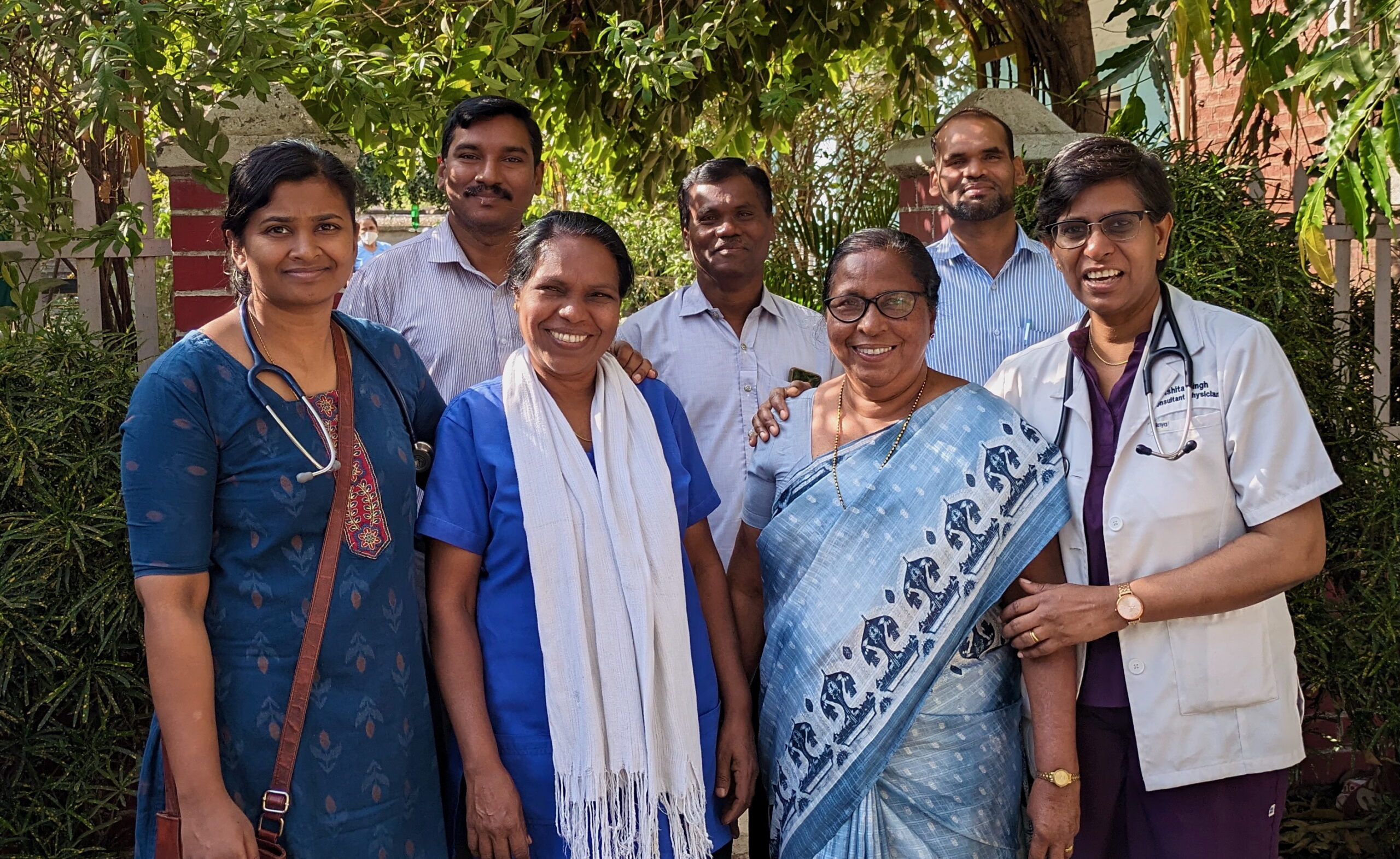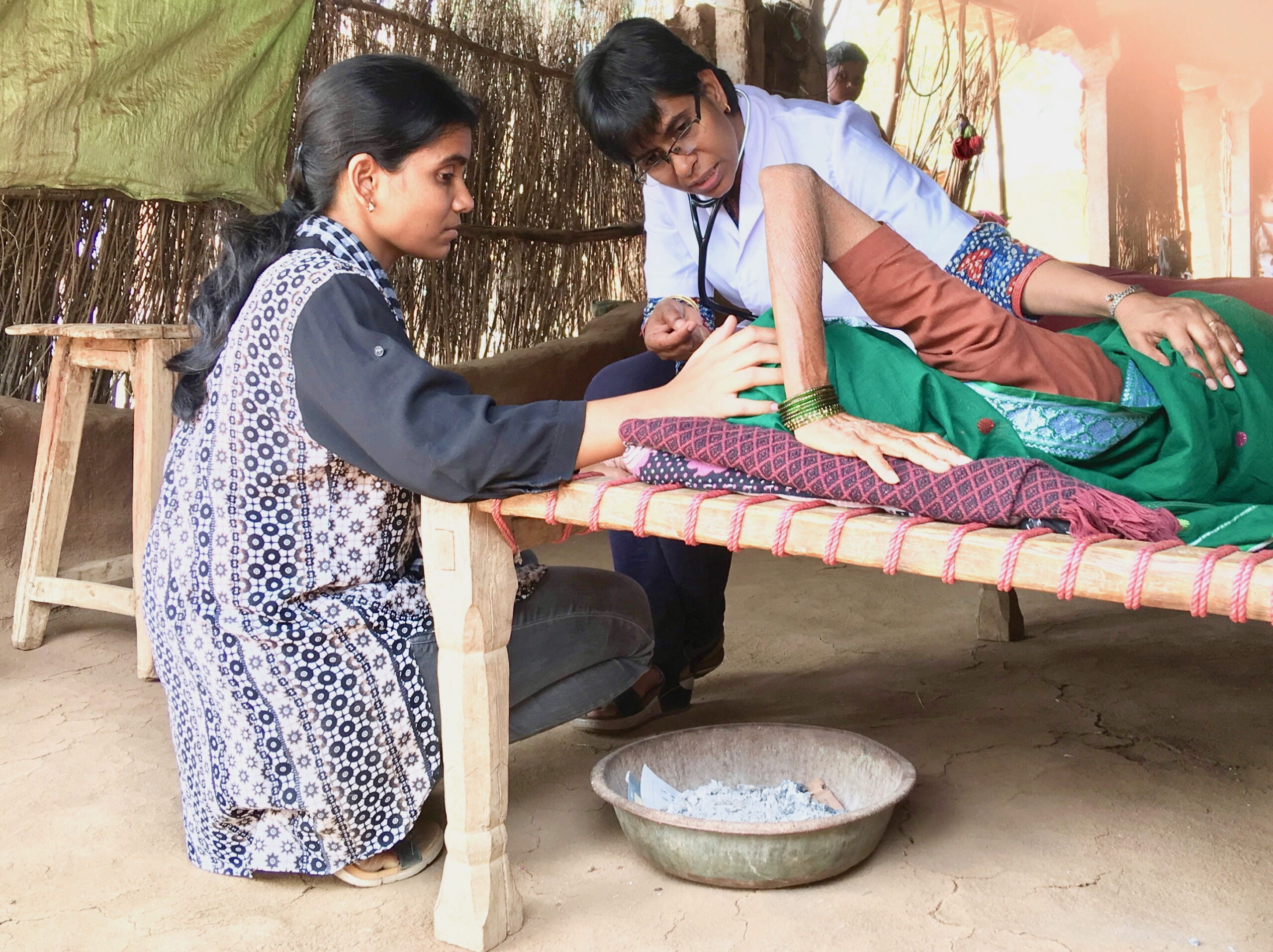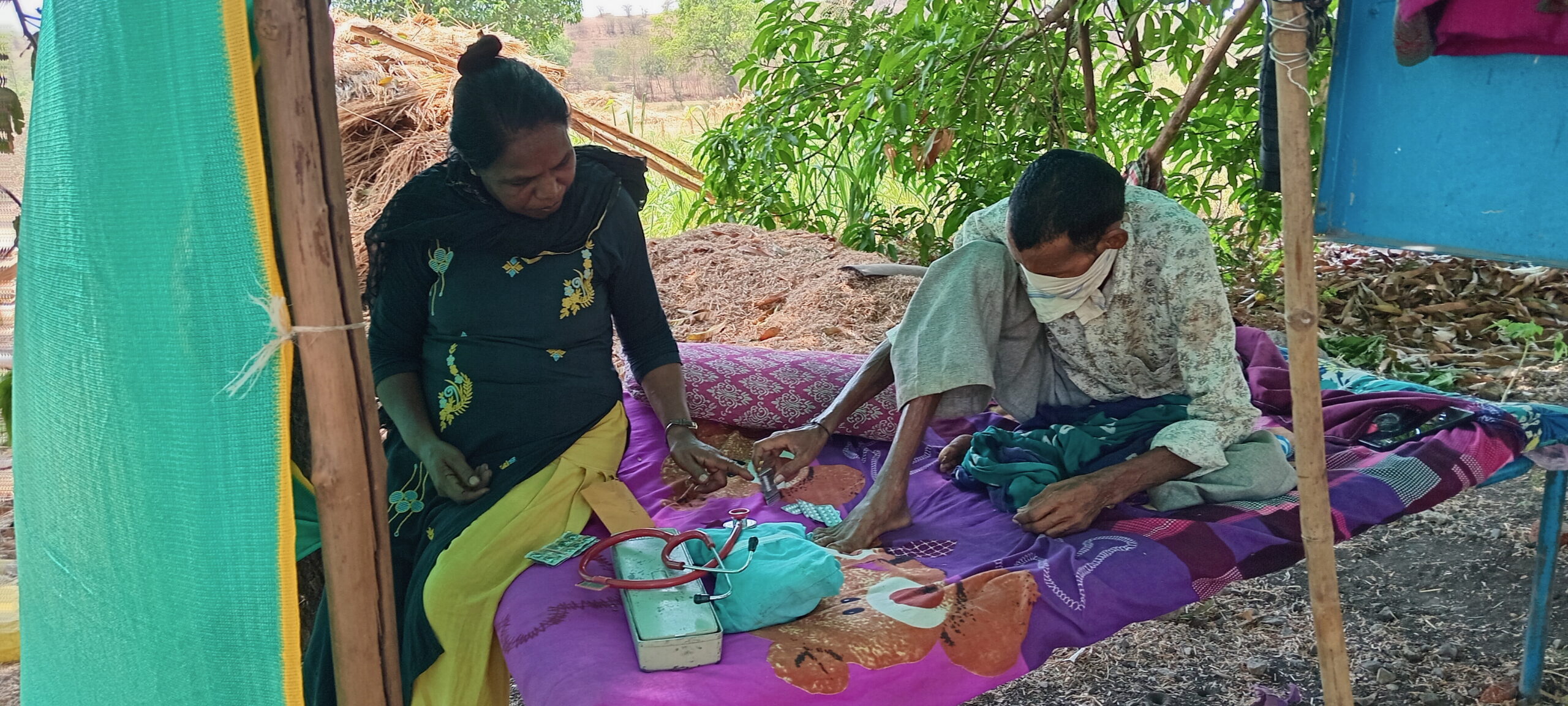India: Palliative care is “a precious privilege”
Suresh is facing the end of his life. The palliative care team at Chinchpada Christian Hospital are ensuring he has the medical care he needs, and comforting him and his family in this time.
Suresh first noticed a growth on his face during the covid-19 pandemic. He is from an indigenous background, and he tried traditional remedies to begin with, but the growth only got bigger. Eventually he went to a private hospital to have a biopsy on the growth, which confirmed that it was cancer. They told him what it would cost to treat – an impossible amount for Suresh.
By the time the CCH team met Suresh last year, the growth had become much bigger, and was even starting to affect his eye. On one visit, as the team tried to explain Suresh’s prognosis to him and his family, his wife said, “Please say he will get better.” They had to gently break the news that this would not happen. His wife wept, realising that her husband was slowly dying.
With this knowledge, the family have been able to prepare for a time when Suresh will no longer be with them. They moved their youngest daughter’s wedding forward, and despite his illness, Suresh was able to carry her on his shoulders at the wedding, as is traditional in their community. Suresh’s wife has also been taking over the business side of their small farm, which will help her to remain independent when she has to run the farm alone.
The CCH team are providing Suresh with opioids so that he is not in pain, and he also asks the team to pray for him when they visit. “We strive to give Suresh the dignity and love in his death that he deserves as a child of God,” says Dr Ashita. “It is a precious privilege to be trusted with much during this crucial time.”
A pioneering programme
Suresh’s treatment is part of the pioneering palliative care programme run by CCH. In India, only about 1% of the population receive the palliative care they need, and that figure is even less in the rural area where CCH works.
Dr Ashita explains, “What we find is that people with palliative care needs do not ask for help because they have accepted their fate of dying in agony and pain, not knowing that there is a way for them to have a better life and a better death.
“Palliative care aims at reducing the preventable suffering of people in the community through a homebased palliative care program. We visit the homes of patients, assess them, and provide them with the multi-dimensional support that they need so that they can have a good quality of life and a peaceful death.”
Last year, the CCH palliative care team reached 298 patients with end-of-life care, as well as providing six months of bereavement support for families after the death of a loved one. They also reached a further 1,179 patients with chronic diseases that are not currently terminal, but can lead to an early death if left untreated.
MAI supporters subsidise this programme, so there is no charge to the families facing the loss of a loved one.

As well as running their own programme, the CCH team have also been providing extensive training for other charities and hospitals, allowing many more families to be reached with palliative care.
In 2024 alone, new palliative care teams from six hospitals came to spend two weeks with the team at CCH, and CCH also ran in-person workshops, online training, and mentoring for other teams. Dr Ashita has also been invited to talk about the programme in international journals and seminars.
Thank you
Dr Ashita says, “Thank you for your partnership in this ministry and for sharing this beautiful journey with us. Your prayers, support and encouragement mean much.”
We are truly thankful to everyone who has given to support this programme. To families like Suresh’s, it makes a huge difference.
If you would you like to support the incredible work of CCH’s palliative care team, and provide a patient and their family with end-of life-care, find out how you can help here.


